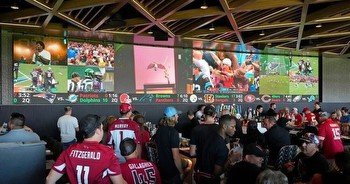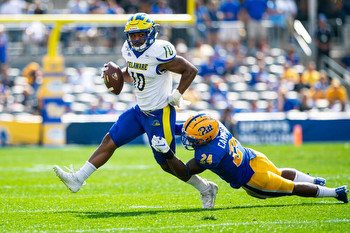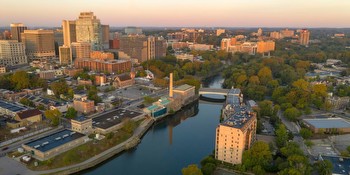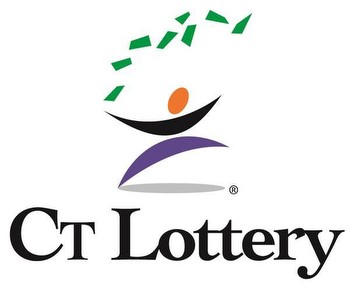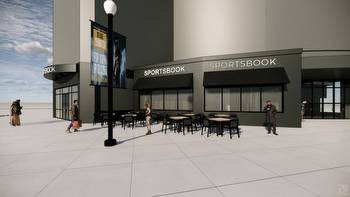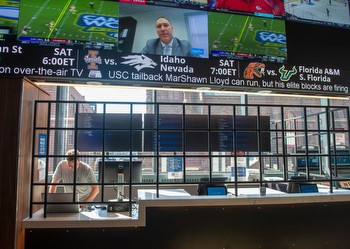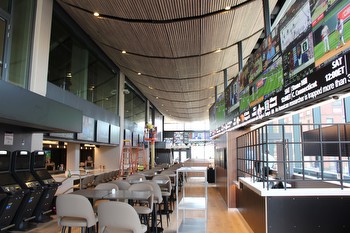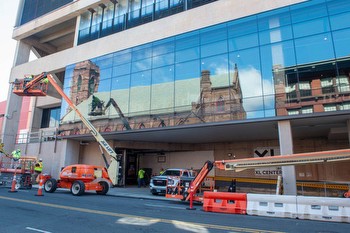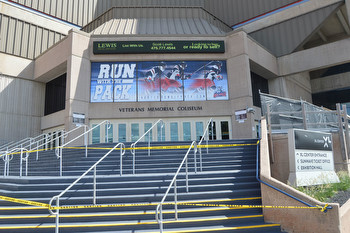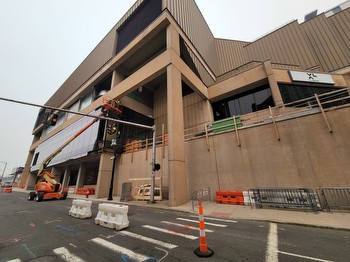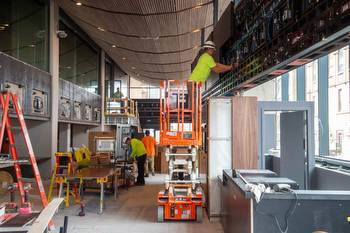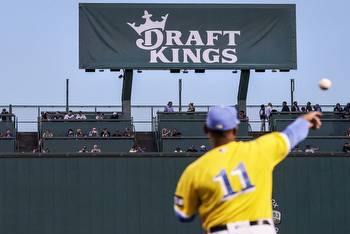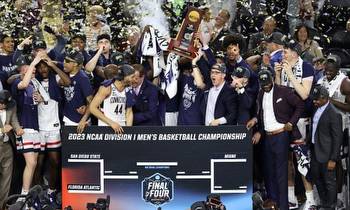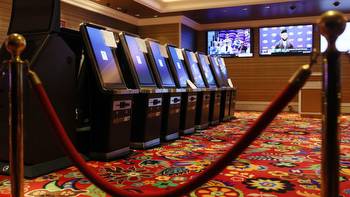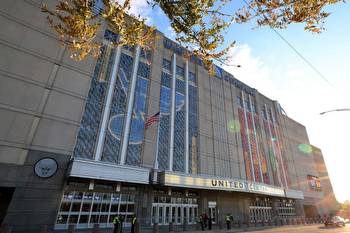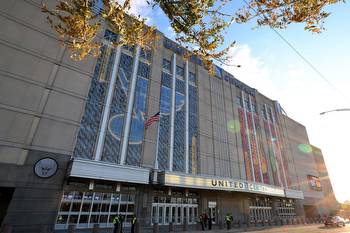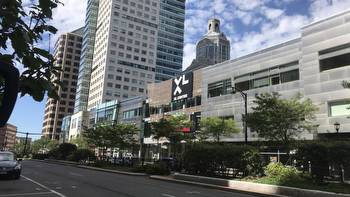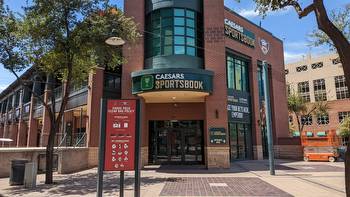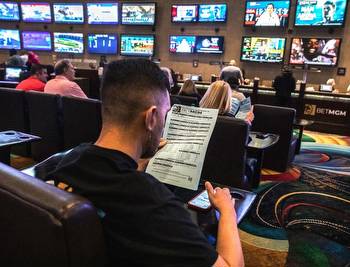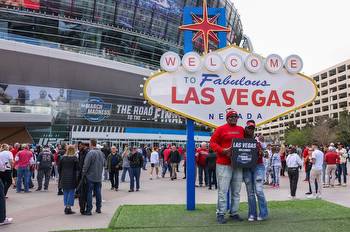CT sports betting venue at XL Center could see $500K loss
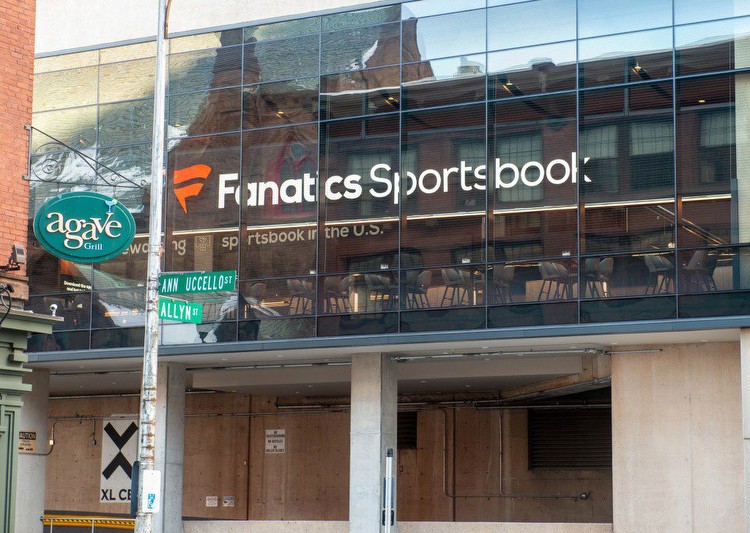
The $5 million sports bar and betting venue at Hartford’s XL Center opened in September with much fanfare, but what is eventually supposed to generate revenue for downtown’s aging arena is off to a slower than expected start and could take a loss in its first year.
In the first five months of operation, the betting venue ran a nearly $300,000 deficit, which puts it on a pace for a $500,000 loss in the fiscal year ended June 30, according to the Capital Region Development Authority, which oversees the XL Center’s operations.
The loss is tied primarily to running the sports bar but has been trimmed from a forecast last month of as much as $750,000 for the current fiscal year.
The 5,000-square-foot sports betting venue — one of the largest in Connecticut — is starting to gain traction, officials say, but it faced challenges early because the state changed sports betting platforms soon after the XL venue opened. Fanatics Betting and Gaming replaced PlaySugarHouse Sportsbook, run by Rush Street Interactive, in early December.
“We launched it with Rush Street because it was ready to go, it was such a large project,” Andrew Walter, director of legal and business affairs at The Connecticut Lottery Corp’s sports betting division, said. “Rush Street was on its way out a couple months later, so (the sportsbook) didn’t get the fanfare or attention from a marketing side that it otherwise would have gotten.”
The challenges getting the sportsbook up and running comes as CRDA evaluates whether bids for a major makeover at the 49-year-old arena will match estimates of $107 million.
The XL sportsbook has taken $1.3 million in wagers and paid out about $1.1 million in winnings through January, according to the state Department of Consumer Protection, which posts sports-betting statistics.
The XL Center’s share of net betting revenue was $22,000 through January, according to CRDA. Eventually, the betting revenue is supposed to offset any losses at the sports bar and make money for the arena.
The Lottery has forecasted that the sportsbook could eventually draw in $15 million to $25 million in wagers annually. After paying out winnings and deducting expenses, the money-losing arena could reap between $600,000 and $1.5 million a year.
“That would make us break even or do better,” Michael W. Freimuth, CRDA’s executive director, said. “But getting there is going to take some work.”
Encouraging signs
Walter said the state could not justify a full-fledged promotional campaign for the XL sportsbook while Rush Street was winding down operations in Connecticut. The changeover to Fanatics involved the swapping of betting kiosks and a soft launch. With those now complete, the promotions for the XL sportsbook are ramping up, with the first being for last week’s Super Bowl.
The XL venue took in $55,000 in wagers over Saturday and Sunday tied to the match-up between the Kansas City Chiefs and the San Francisco 49ers, Walter said. The wagers were less than other more established sportsbooks in Connecticut. But it was nonetheless an encouraging sign as college basketball draws closer to the March Madness tournament, Walter said.
The two days of wagers on the Super Bowl represented almost 14% of all the bets made for the entire month of January.
Walter said wagering has increased each month since the XL sportsbook opened in September, coming in at nearly $400,000 in January, according to the DCP.
Bigger signs to indicate the entrance to the sportsbook at the west side of the XL arena, at the corner of Ann Uccello and Church streets, also have been installed.
“It’s hard to miss,” Walter said. “If you go to Ann Uccello Street, there are two, 40-foot, back-lit signs that scream the brand — in a nice way,” Walter said.
New XL Center amenity
The thought behind the sportsbook was to create a new amenity on what had been a dreary corner of the XL Center. In turn, the sportsbook would attract visitors on days even when there wasn’t a major event in the arena. But the wagering venue also was intended to generate revenue for the arena, which typically loses $2 million a year.
The sportsbook venture at the XL Center is partnership between The Lottery, which oversees sports betting in Connecticut and the quasi-public CRDA, which oversaw design and construction, and is running the sports bar.
CRDA already is making significant changes to how the sports bar is run to rein in costs and draw more patrons. The sports bar is now being run directly by the company that manages the arena, rather than an outside vendor. A new menu will debut this week to better attract the lunchtime crowd and downtown residents The venue expects to partner with local restaurants for March Madness.
Freimuth has often pointed to the challenges to ramping up the sportsbook, including slow traffic weekdays during the summer.
There are also may be cultural obstacles as well. The first gambling impact study since Connecticut legalized sports betting and online casino gaming in 2021 found that two-thirds of residents gamble, though only 10% bet on sports or play online games, CT Mirror reported.
The sportsbook opening was delayed a year because construction materials — everything from glass and components for heating and cooling systems to even chips for video display boards — were backlogged for months in the aftermath of the pandemic’s supply-chain disruptions.
The $5 million in state funds spent on the XL Center’s sportsbook was part of a larger, $15 million package of improvements.
Those upgrades include a new commercial kitchen to serve the sportsbook and elsewhere in the arena; a self-serve area for snacks and drinks in the concourse for those who don’t want to wait in line at a concession; a new elevator; and a replacement of the outdoor concrete staircase leading up to betting venue’s entrance.
But now, CRDA’s Freimuth and others are looking ahead to a more comprehensive, long-debated makeover of the aging Veterans Memorial Coliseum that opened in that was originally called the Hartford Civic Center.
Renovations at the arena in the heart of downtown Hartford may have the best chance in a decade with a downsized, $107 million plan focused on the lower half of the arena. The project, the majority financed with state dollars, would be partly funded by a private investment from the arena’s day-to-day manager Oak View Group, often referred to as OVG.
The makeover is aimed at making the XL Center more competitive with new arenas for events; help the venue turn a profit and carry it through another two decades. Plans would target the addition of premium seating that command higher ticket prices and new amenities, plus upgrades to the concourse and building systems.
The premium seating — include “loge” seating off the concourse, club space under the stands and “bunker suites” at event level — plus upgraded concessions are all intended to increase the arena’s revenue.
Technology also would be a priority, partly to better accommodate heavy social media posting and texting during events.
Bids for the various parts of the renovation are now being reviewed. If the bids come close to the $107 million, the project could launch later this year. If the bids are too high, it is possible some parts of the renovation could be scratched or a major project may be abandoned.

